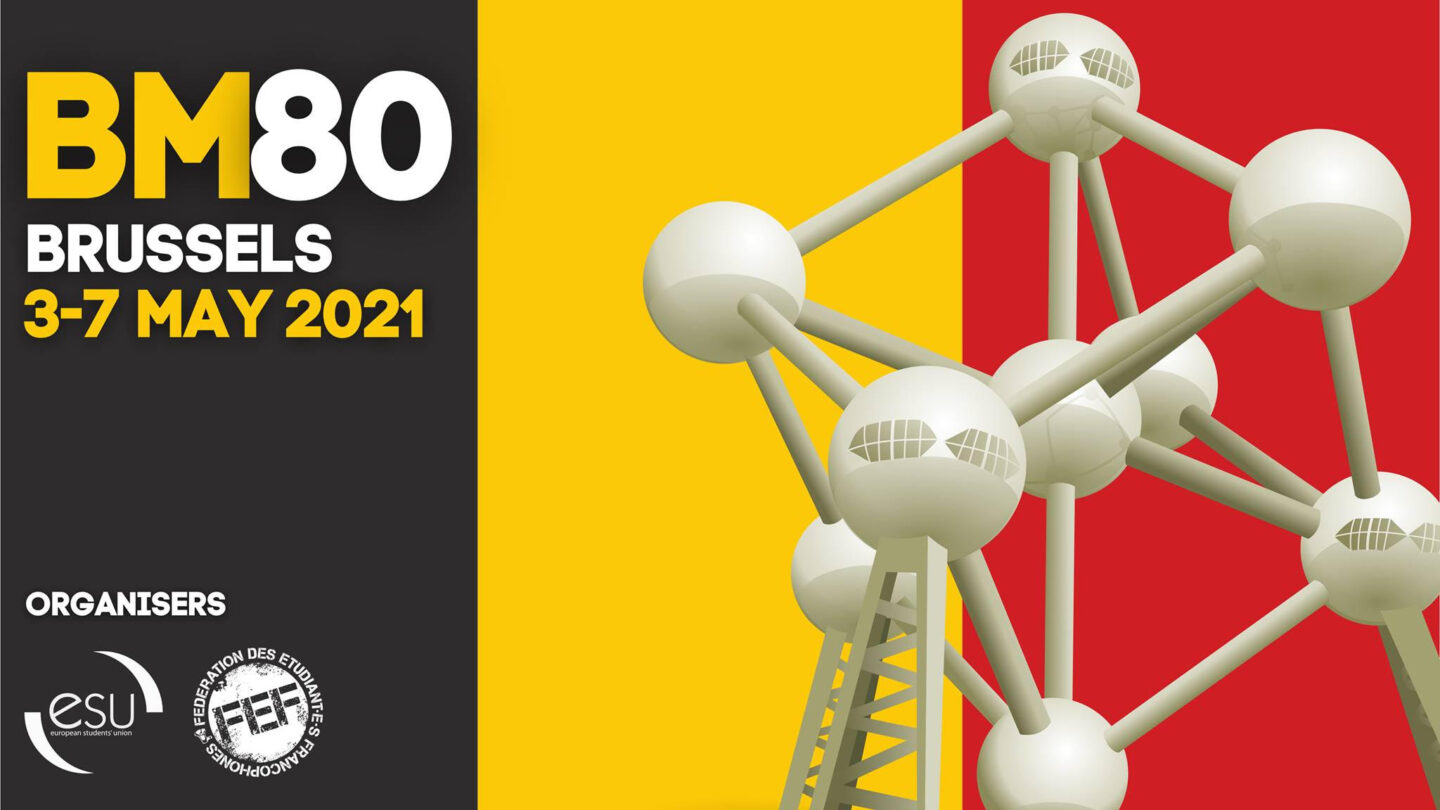Between 3 and 7 May, Board Meeting 80, abbreviated BM80, was held, and SFS's international committee Komit represented the Swedish students. BM is the European Students 'Unions' (ESU) decision-making meeting and is held twice a year, one in the spring and one in the autumn. SFS is a member of ESU and was one of the organizations that started ESU about 40 years ago. From Komit, the entire committee participated with Patrik Henriksson, Linn Svärd and Matilda Ninasdotter Holmström.
What happens at BM?
The ESU has 45 members from 40 different countries in Europe and the ESU's offices are in Brussels. In addition to the decision-making meetings (BM), two European Student Conventions (ESCs) are also arranged annually, corresponding to SFS member meetings. Both BM and ESC are arranged by the members, therefore the meetings rotate between different countries. Due to the pandemic, BM78, BM 79 and BM80 have been arranged digitally and we have taken the meetings from home, but otherwise Komit participates on site to represent Sweden's students, which means some travel around Europe. BM75 was held by Montenegro, BM76 by Bulgaria and BM77 by Malta. We look forward to meeting our European colleagues again when the pandemic is over!
The spring BM had a number of mandatory points, such as the choice of presidium, board and auditors, decisions on business plan and budget. As a consequence of the pandemic, the terms of office have been postponed by six months. The majority of the previously elected representatives chose to apply to continue for another year, and thus sit for a total of one and a half years. We would like to congratulate all the newly and re-elected representatives!
In addition to the mandatory organizational issues, a number of opinion documents were discussed and decided upon. ESU has the majority of statements, policies and charters with opinions on what affects students and higher education. This time, three policy documents were discussed, which we delve into below.
"Statement on Internationalization at home"
"Statement on Internationalization at home" is about defining a mobility that does not only involve exchange studies physically on site in another country and contribute with arguments for not cutting the budget for physical mobility. The document describes that virtual mobility is not mobility, but should only be seen as a complement to physical mobility. At home, internationalization means that it exists as a consistent theme in all parts of an education. In addition, the document addresses language barriers and cultural experiences, and that internationalization at home must be financed separately from physical mobility.
"Students rights charter"
"Students rights charter" can be seen as a list of rights for students and at this BM the document was updated and ESU's views were further deepened. In Europe, there are issues of varying nature that are important to the student. SFS's view is that higher education as a system should give the student a good education and for this the student should also have good conditions for being accepted, completed and paid for a degree in higher education. Students' right charter is a potpourri of demands for a good study time.
Great discussion about Micro-credentials
Since the spring of 2020, the discussion about Micro-credentials, MC, has escalated and now it feels like we hear it in every other context. It refers primarily to the European arena, but also in the Swedish context it is treated - thus it was also an issue at BM and here the ESU has now concretized the organization's views on motorcycles. The Swedish system with independent courses is at the forefront and the freedom of choice and flexibility that exists for the student is what MC tries to emulate. However, there are a number of aspects to keep in mind. The first applies to who gives the course, is it within the university or someone outside? In the Swedish system, we distinguish between polytechnics and academia. There is a concern about what these motorcycles are and that they should be outside the established quality assurance system. This approach is monitored by the Committee and the ESU will continue to be involved in the issue.
Dialogue with other Nordic countries
In addition to pursuing politics, Komit has also had many dialogues with our Nordic neighbors within the Nordic Chairman's Meeting (NOM). Almost all members of NOM are also members of ESU, and since our education systems and cultural contexts are the same, we have a great exchange in the policy discussions.
If you have questions about the committee's work, you can contact Linn Svärd or [email protected].
Comet
Matilda, Linn and Patrik
